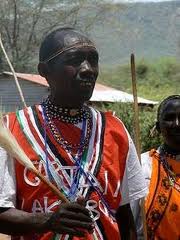Domestic violence, also known as domestic abuse, spousal abuse, family violence, and intimate partner violence (IPV), has been broadly defined as a pattern of abusive behaviors by one or both partners in an intimate relationship such as marriage, dating, family, friends or cohabitation. A stop must be put to domestic violence affecting women in all its forms. This includes rape and sexual violence, sexual harassment, female genital mutilation, forced marriage, crimes in the name of honour, trafficking and sexual exploitation of women.
It is disheartening that men that the women know or are in a close relationship with mostly commit these heinous crimes against them.
African women, for example, are precious members of society; they are hardworking, committed and beautiful.
Violence against women, especially in our part of the world, is serious and sometimes people keep silent about it.
Indeed, domestic violence continues to persist in many parts of Africa, and remains one of the most heinous and preventable human rights abuses.
These kinds of violence cause physical damage, ranging from death in extreme cases to miscarriage, broken limbs, cuts and bruises.
In the same vein, women also suffer scarring and physical disability and sexual offences that expose them to the risk of HIV, sexually transmitted diseases and forced pregnancies.
It's sad to learn that such violence can also cause lasting psychological damage to women.
The law must continue to take its course on the perpetrators of violence against women. Such violence has often gone unreported and, until recently, there was across Africa few supporting pieces of legislation or official practices that could be used to challenge it.
Its true to say that several states had signed and/or ratified international conventions and treaties, such as the 1979 Convention on the Elimination of All Forms of Discrimination Against Women (CEDAW) or the African Charter on Human and Peoples' Rights, but these had not been incorporated into domestic law in many countries.
The protocol to the African Charter on Human and Peoples' Rights on the Rights of Women in Africa was ratified by many, but the challenge is the implementation in some states.
Our states need to take measures to address not only violence against women, but also other aspects of women's rights in public or private life, in peacetime and during conflicts.
This must include marital rape and other forms of forced or unwanted sex.
All forms of violence deprive women of their ability to achieve their full potential by threatening their safety and freedom.
Significant achievements have been made in many African countries to address the issue, including The Gambia but more need to be done, especially in the areas of rape and other forms of domestic violence.
This struggle calls for concerted efforts, and thus the need for the support of all and sundry.















